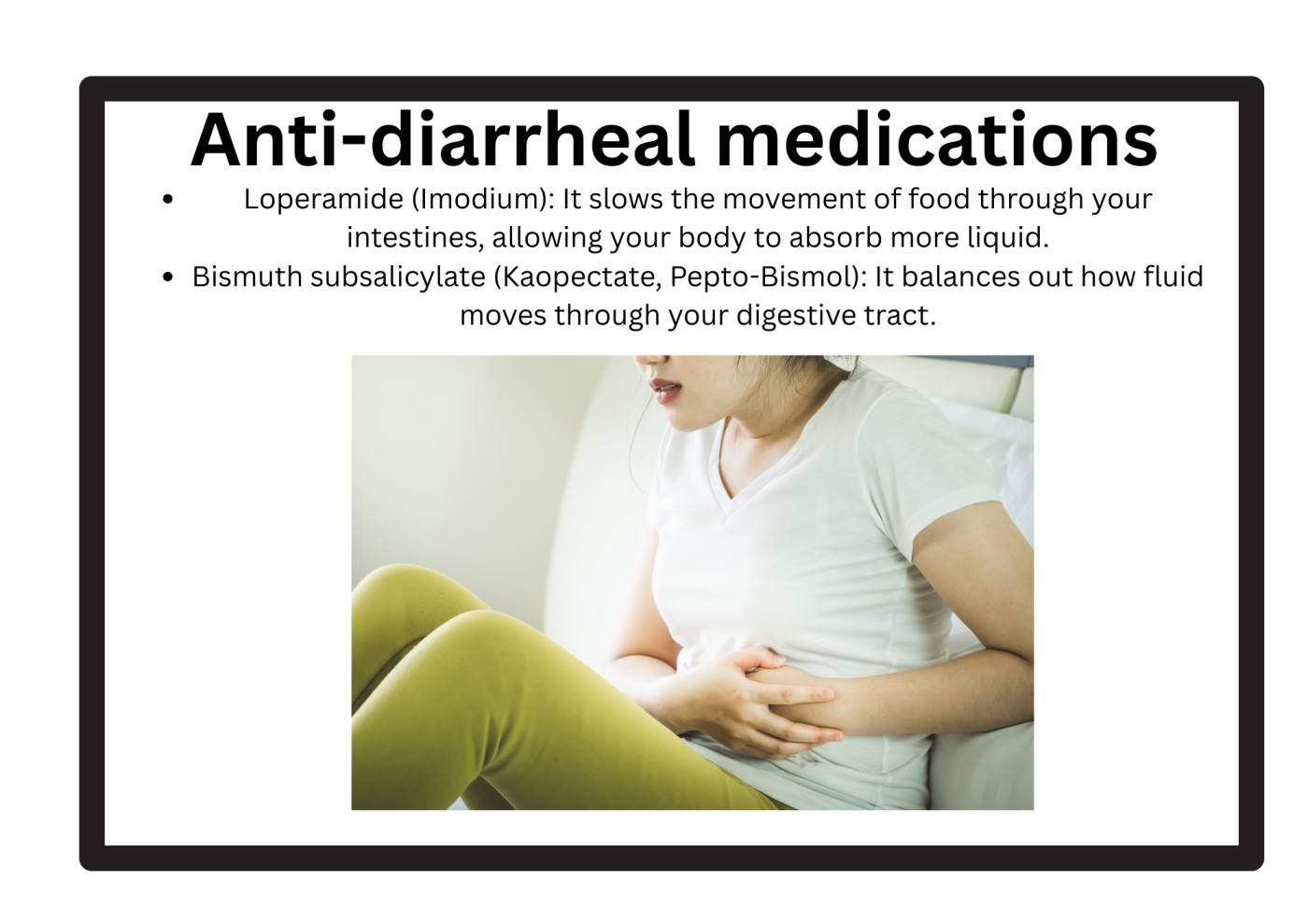Diarrhea Medicine
Self-treatment
Dehydration may be avoided by replacing lost fluids with an oral rehydration solution (ORS). Loperamide and other antidiarrheal medications may also be helpful.
Foods that prevent diarrhea
Eating simple, basic foods is the most effective dietary advice to keep in mind when you have diarrhea. The BRAT diet, which stands for bananas, rice, applesauce, and toast, is one strategy.
A good source of potassium, an electrolyte that is lost when you have diarrhea, is found in bananas.
Rice: White rice is easier to digest than brown rice or any other type.
Applesauce: Preferably unsweetened.
Toast: To make digestion easier, choose white bread.
Seeking medical care
Consult a physician right away if your child or infant: has not had a wet diaper for at least three hours.
has a fever of at least 102°F (38.9°C).
- has black or bloody stools
- After 24 hours, it doesn’t get better and becomes listless or unresponsive.
- cries without tears or gets dry mouth
- has a sunken appearance in the cheeks, eyes, or abdomen.
Schedule a visit with a physician if you: Experience diarrhea that doesn’t go away after two days
Pass any black or bloody stool.
Very little urination or extremely dry skin and mouth
Get a fever that is higher than 102°F (38.9°C).
Feel discomfort in your abdomen or in your throat
Overview
Watery, loose stools that happen more often than they should.
A virus or occasionally tainted food is the most common cause of diarrhea. Rarely, it may indicate another illness, including irritable bowel syndrome or inflammatory bowel disease.
Frequent loose, watery stools and stomach ache are among the symptoms.
Most instances resolve themselves. Antibiotics may be necessary for certain infections. In severe circumstances, dehydration may become severe enough to necessitate intravenous fluids.


Leave a Reply